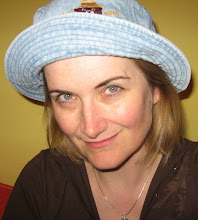It seems only in the former Yugoslavia do economic laws of supply and demand not apply to pricing. In the US, EU, and even Asia, real estate prices are plummeting. Although sales in both Belgrade and Zagreb are practically at a standstill these days, you won't find many bargains.
We've heard and read conflicting numbers from the press, realtor associations and friends on the street. In Belgrade, prices of flats that absolutely have to be sold (as opposed to flats that an owner could hang onto indefinitely if need be) have just recently gone down by roughly 20%. But that still makes Belgrade one of the most expensive places to buy in Central Europe, and prices are still far above 2007 levels.
Unfortunately Serbian mortgage costs are rising - now at 12% interest and higher. However, only about 30% of Serbian homes are purchased with a mortgage, most are entirely cash transactions with prices based on Euros despite local jobs being mainly paid in Dinars. So you can imagine things are even tougher now that the Dinar is in trouble. Still, Belgrade realtors actively dislike and even dissuade buyers who want to use bank financing because the extra paperwork is a pain for them. (Can you imagine an American realtor turning down a buyer with a mortgage?!)
In Zagreb, where last year only 80 flats sold in an average month and far fewer sell now, there are at least 1,000 flats on the market. Things are so bad that one real estate developer has started giving away a free car with every apartment in an effort to make sales. Nevertheless, in the past six months typical Zagreb flat prices may have gone UP! The Croatian logic is, if you are going to sell fewer flats, you should raise the price so at least you "should" make the same amount of money. Honest to god.
Why are former Yugoslavians such crappy capitalists? Why do they lack any instinct for price flexibility in the face of marketplace shifts?
Partly it's because few people absolutely have to sell. They may want to sell, but the world will not come to an end if they hang onto their property for awhile longer. They almost never have an existing mortgage to pay off; real estate taxes are laughably tiny; and, insurance costs are insignificant. Our US house costs more than $7,000 per year just to own due to taxes and insurance. Our home in Sombor Serbia costs maybe $100 per year to own. We could leave it sitting there for the rest of our lives and not worry about our pocketbook.
Also, unlike the reams of realistic pricing stats available in the US, Serbs and Croats often only rely on word of mouth to make pricing decisions. My local US newspaper constantly reports on home sale prices, and if I miss a notice, I can check both the most recent sale amount and the current estimated value of nearly any home in America just by plugging in an address at Zillow.
In Yugoslavia the news that a home or flat sold for a lot of money, perhaps to a crazy rich foreigner such as a Montenegrin flush with Russian cash or a returning former citizen from the diaspora of the 90s, spreads like wildfire. Everyone in that town with a flat to sell immediately thinks, 'Hey my place is with more now!' and they raise their prices accordingly even if their flat has nothing whatsoever in common with the one that actually sold, and even if the one that sold is the only one to sell in months. Owners truly believe their flat is "worth more" now, as though the new price is engraved in stone.
Prices can rise even on just a whiff of a potential sale. Last year a realtor in Zadar told me he recently received a full price offer from a German tourist for a flat in a good location near the famous sea organ. Instead of accepting the offer, the flat owner scoffed at it saying, 'Well, if someone will agree to pay my price so quickly, then obviously I've priced too low. Tell him the price is now higher."
When the German walked away from the deal, shocked by the Croatian's lack of business sense (not to mention ethics), the Croatian smiled calmly, serene in the knowledge his flat was worth a lot more money than even he'd expected, and someday no doubt it would actually sell for that amount. Then he ran to tell his neighbors and they to tell their relatives, and so on and so on, until nearly every flat in town had risen at least 10% in asking price.
Since then hardly anything's sold whatsoever. But, everyone is content counting their pennies (or rather Kuna) in the golden, imaginary world of someday to come.
Experiences of an American woman who was married to a Serb.
Subscribe to:
Post Comments (Atom)

3 comments:
Capitalism is one big Ponzi scheme. LOL. We never actually *own* anything; we're always in the process of paying it off. We owned more things in a communist country than we do here, and at least we weren't slaves to some bank or a credit card debt. And did I mention that the health care was free too? Oh well. Good ol' days.
LOL, gotta love the Balkans and their mentality!
Croats are generally distrustful of bank instruments, be they "exotic" or what we Americans consider "normal" such as mortgages. Individually and as a country, they don't like the idea of debt. They live in a way that television economists like Suze Orman are always preaching to US viewers.
Post a Comment